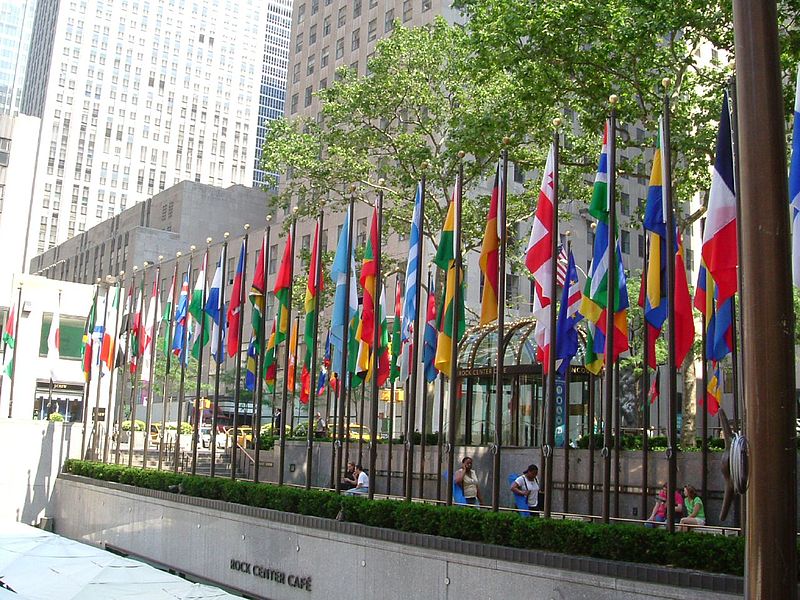Look closely at the achievements of American foundations and you’ll find that there really aren’t that many. Most of the time foundations tend to overstate their successes or take credit for good deeds that they really shouldn’t take credit for.
So it a pleasant surprise to learn that a major American foundation did a good deal to help scholars threatened by the advance of Nazism in the 1930s leave Europe and find jobs in North and South America until they could return to Europe after World War II ended. But Steve Clemons of the New America Foundation unearths some of the Rockefeller Foundation’s activities in an article in The Atlantic.
I know more about the Rockefeller Foundation than most people, but I don’t know very much about what the foundation did in the 1930s. Their most notorious gaffe was their aid to German eugenicists, including one of Josef Mengele’s teachers, in the years before 1933. Clemons says that the Rockefeller Foundation helped “support the intellectual ecosystem from which the notorious physician Josef Mengele emerged,” and that judgment seems right to me; they are guilty of a lack of due diligence in their grantmaking, not in actively seeking out and supporting eugenics schemes.
Clemons explains that, in 1933, after Hitler came to power, the great economist Joseph Schumpeter suggested to the Rockefeller Foundation that German economists were in trouble, and offered suggestions as to who the foundation should bring over. Because Clemons is writing a short article and not a monograph or a book, he omits details that should have been provided. But it appears that Schumpeter was ignored.
The Rockefeller Foundation, however, could not ignore the European situation, and there appears to have been a great deal of internal debate about what to do. Last year the Rockefeller Foundation, as part of its centennial celebration, put a great many of its internal memos online, and Clemons links to some of them.
Perhaps the most important is a general memorandum by Rockefeller Foundation social sciences director Joseph Willits in May 1940 entitled “If Hitler Wins---." In the memorandum, Willits warned about the intellectual devastation that would result in German-dominated Europe, and stated that “I would take the initiative and shop for the best. I would do this cold-bloodedly on the assumption that Nazi domination of these countries makes them a poor place for a first-class person to remain in.” He called for the foundation to sponsor 100 British scholars and 75 French ones.
Willits also said that the foundation had to deal with the prejudice of American universities towards foreign refugees: “We would be immediately confronted with the ‘elbows out’ attitude toward refugees of many United States campuses. I think this difficulty need not be insurmountable.”
Ultimately, the foundation set five rules for determining who the foundation would support under its Emergency Program for European Scholars, including that the scholars would be “outstanding in their field,” had lost their teaching positions in Europe “and generally considered to be in some danger,” and had a guaranteed job at an American university for at least two years.
By the Rockefeller Foundation’s count, the foundation saved forty-nine scholars, most notably anthropologist Claude Levi-Strauss, economist Ludwig von Mises, and physicist Wolfgang Pauli. By the foundation’s count, they saved six Nobel laureates and six future Nobel laureates, although Clemons does not list who these winners were in his piece.
Still others were not saved, most notably historian Marc Bloch, who was accepted into the program but did not go to America because he did not want to abandon his two adult male children, who were denied visas by the Vichy government in 1941. Bloch ultimately joined the French resistance and was executed by the Nazis in 1944.
Clemons’s scoop is fascinating, but why are we just now learning about the Endangered Scholars program? The program was not, for example, one of the cases in Joel Fleishman’s The Foundation. In addition, I’m fairly certain that the program was not mentioned in John D. Rockefeller 3rd’s Second American Revolution, a 1973 book in defense of foundations. We know that John D. Rockefeller 3rd knew about the program, because one of the memos the Rockefeller Foundation has put online is one from Rockefeller Foundation president Raymond B. Fosdick to Rockefeller asking him for authorization for the program from the Rockefeller Foundation board of trustees.
Still, the Endangered Scholars program was a good deed on the Rockefeller Foundation’s part, and a program that deserves to be better known. I hope Clemons gives us a more detailed account of the program in the future.
P.S. Accompanying Clemons’s article is an interview Clemons did with the current Rockefeller Foundation president, Judith Rodin. I wish Rodin had spent more time discussing the legacy of John D. Rockefeller, John D. Rockefeller Jr., and the Rockefeller family on the Rockefeller Foundation.






